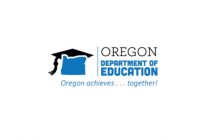(Photo | by Catherine Sheila of Pexels)
On March 25, Senator Jeff Merkley (D-OR) and Representative Alan Lowenthal (D-CA) reintroduced the Break Free From Plastic Pollution Act (BFFPPA), the most comprehensive bill ever introduced in Congress to address the plastic crisis. The BFFPPA builds upon state and local laws across the country, outlining plastic reduction strategies to improve the health of people and the planet. The bill was reintroduced with strong updated language, and would (1) reduce plastic production before it has a chance to pollute, (2) increase recycling rates and (3) protect frontline and fence-line communities from the burden of plastic waste.
“This is so important. We are facing a crisis of plastic pollution. It’s more than seeing a mountain of plastics; it is also poisoning our bodies,” said Merkley during a national online press conference on March 24. “Each of us is digesting the same amount of plastic found in a credit card every week, and all the chemicals in this plastic. We are taught the three Rs, reduce, re-use and recycle, and we figure there must be a system in place to handle this. But that’s not the reality. The reality is BBB: bury, burn or borne out to sea.” He added, “Only eight percent of plastic that goes into the blue bins gets recycled. The majority ends up in landfills, streams and oceans or gets burned. It unleashes a full-blown public and environmental crisis in our country, especially in our inner cities. We need to ensure that no parent, regardless of where they are, has to worry about children ingesting harmful plastics. This bill does that.”
Lowenthal said his desire to push this bill through intensified after he took a trip to Antarctica with a group of scientists a little over two years ago. “They showed me the immense amount of plastic the native birds had ingested. This is in the most remote part of the planet! I came back determined to do something more comprehensive to solve this problem.” He continued, “I’m very glad to join with Senator Merkley to introduce the Break Free From Plastic resolution. Many of us have recognized the plastic waste crisis for a while. Now we are just understanding as a nation the severity of this crisis. This is not simply a solid waste issue; it is intimately tied to climate change. It impacts public health, the environment and certainly our climate.”
Lowenthal said he had heard that Senator Merkley and former Senator Mark Udall were also interested in this, so the three of them began to take public comments awhile back. “This bill that we introduced, and then upgraded and expanded, is the most comprehensive legislation ever introduced to tackle the plastic waste crisis. It is very important for us to understand that there is nothing new or radical in this; it just emphasizes best practices that are already being implemented to a degree.”
The bill shifts the cleanup away from communities, states and municipalities and places responsibility for waste management and recycling to manufacturers and producers, Lowenthal said. “There is a dramatic shift around the conversation about plastic waste. We are very excited to work on this here in the house, the senate and within this administration, which is very interested in working on these principals.” He added, “There is lots of discussion about this already; we are seeing people on TV talking about it. Industry is already concerned because the time has come to take a comprehensive approach. This bill’s time has come, and there is tremendous movement and momentum.”
The Break Free From Plastic movement is a global effort launched in 2016 with the vision of a future free from plastic pollution. More than 11,000 organizations and individual supporters from across the world have joined the movement to demand massive reductions in single-use plastics and to push for lasting solutions for plastic pollution. BFFP member organizations and individuals share the common values of environmental protection and social justice, and work together to bring about systemic change under the #breakfreefromplastic core pillars. This includes tackling plastic pollution across the entire plastics value chain — from extraction to disposal — focusing on prevention rather than cure and providing effective solutions.
During the national press conference, which took place the day before the bill was reintroduced, Merkley and Lowenthal joined environmental advocates from across the nation to discuss the Break Free From Plastic Pollution Act. Other speakers included Mariana Del Valle Prieto Cervantes of GreenLatinos, Judith Enck of Beyond Plastics, Alex Truelove of U.S. PIRG, Yinka Bode-George of National Caucus of Environmental Legislators, Scott Cassel of Product Stewardship Institute, Carroll Muffett of Center for International Environmental Law and Yvette Arrellano of Fenceline Watch.
“Many of the same ideas keep returning again and again,” said Truelove during the conference. “It’s because they work. Targeting reduction of plastics works. Relying on pipe dreams doesn’t work.
Other countries have eclipsed our efforts, even though we remain one of the biggest generators of plastics. I feel excited and optimistic that we may have the wisdom and knowledge now to pass the bill.”
Enck, who served in the Obama administration, said, “This act is the most comprehensive and effective legislation ever introduced to congress that addresses the generation, production and usage of plastics. National bottle bills reduce litter, particularly in communities that don’t get sanitation cleanup, and provide a revenue resource for those who pick up the containers at no cost to the public. The bill also bans plastic bags and puts a fee on paper bags, and prohibits polystyrene popcorn and food containers. It also requires servers to ask customers if they want a plastic straw rather than just giving one out.”
Merkley, who has been a U.S. senator for Oregon for 12 years and is an advocate for environmental issues, said he wants corporations to take responsibility for their actions. “It’s time to unleash that same American ingenuity to find solutions for this that we used when we found all the creative uses for plastics.”
In a Greenpeace article published on March 25 (greenpeace.org), Greenpeace reported, “More than eight million tons of plastic enters our oceans every year, drowning wildlife and wrecking ecosystems. The cost to human health has also been enormous, especially in Black, Brown, Indigenous and low-income communities where the majority of petrochemical facilities and plastic-burning incinerators are located. These frontline communities experience the worst impacts of toxic fumes being spewed along the entire plastic lifecycle! The Break Free From Plastic Pollution Act of 2021 is strong legislation to tackle this crisis. The comprehensive federal legislation would begin to phase out throwaway plastics made from fossil fuel, hold the plastic industry responsible for its waste and pause construction on any new plastic-making plants. And with a new administration and a new Congress, the political will is on our side to make this historic legislation to tackle plastic pollution law.”






